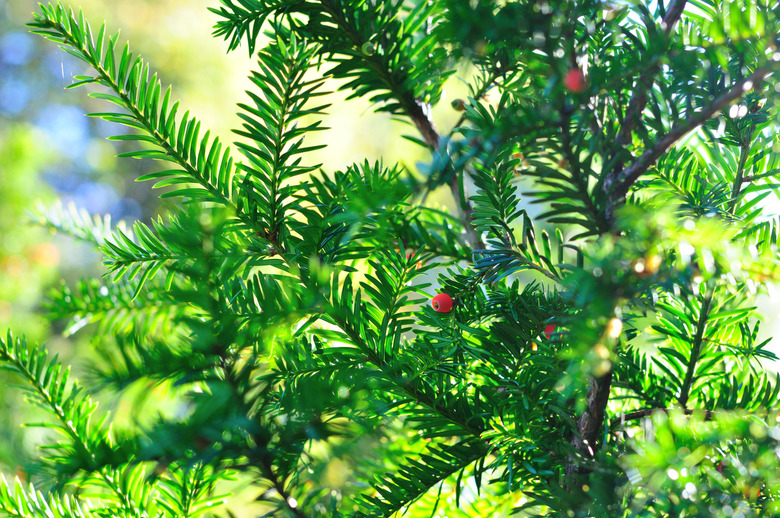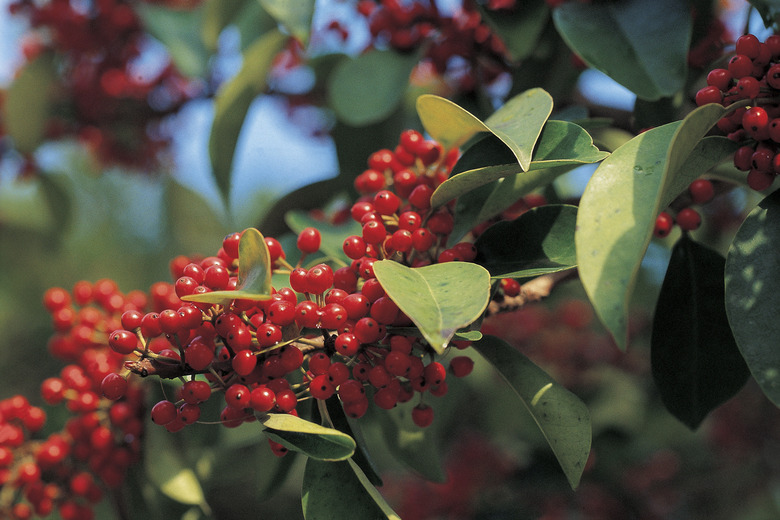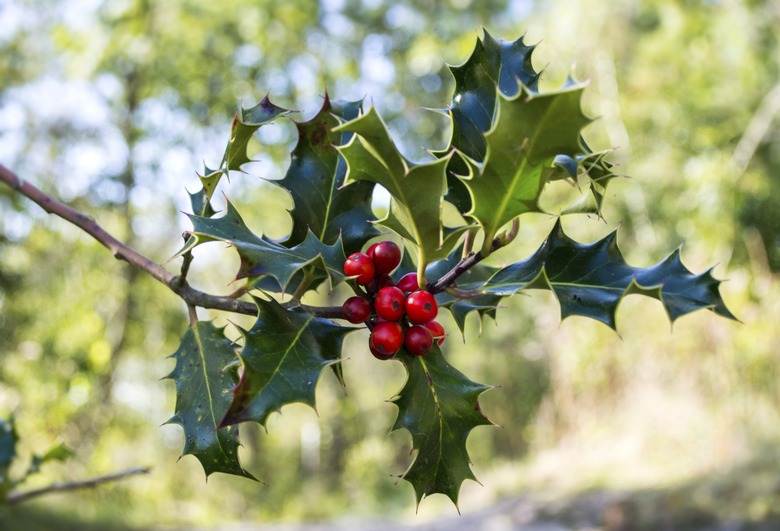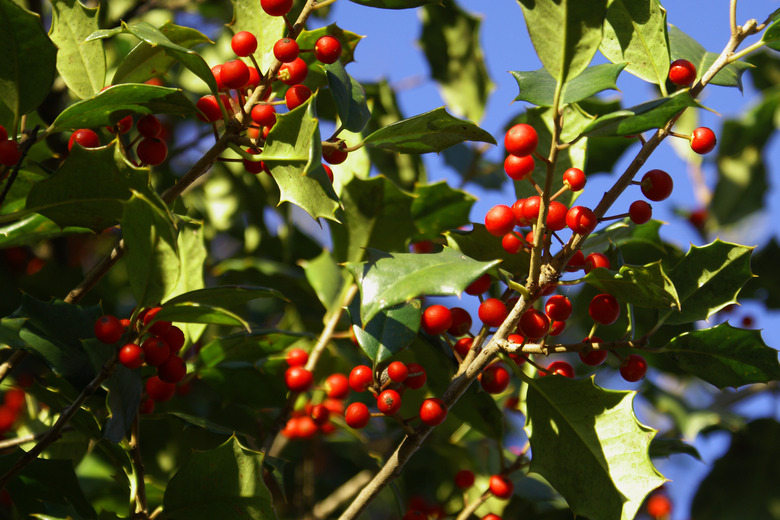Types Of Evergreen Trees With Red Berries
Evergreens are trees that keep their leaves year-round. They were revered by people in pre-Christian Europe, who decorated their homes with evergreen boughs to celebrate the winter solstice. Evergreens are still widely used in holiday decorating; their dark-green leaves and bright-red berries are synonymous with Christmas in many societies. Evergreen trees are also attractive additions to gardens and landscaping.
Yew
The yew tree, or Taxus baccata, is native to North Africa and Europe. These are densely branched evergreen trees with dark-green needle-like leaves, reddish-brown bark and red berries. Yew trees grow to be approximately 30 to 50 feet tall with a 20-foot spread. Yew trees do not do well in extreme heat, cold or wind. They prefer well-drained moist soil with either full sun or partial shade. They are attractive as hedges, mass plantings or ornamental trees, among other landscaping uses.
- Evergreens are trees that keep their leaves year-round.
- They were revered by people in pre-Christian Europe, who decorated their homes with evergreen boughs to celebrate the winter solstice.
Toyon
Toyon, or Heteromeles arbutifolia, is also known as the California holly, California Christmasberry and Christmasberry. These small evergreen trees or shrubs can grow as tall as 15 or 20 feet, but they usually grow to be between 6 and 8 feet tall with a 4-foot to 5-foot spread. Toyon trees are popular during the Christmas holidays because of their dark-green leaves and bright-red berries. They prefer dry, well-drained soil of poor quality and can grow in either sun or shade. Toyons are drought-tolerant and adaptable to a variety of different growing conditions.
English Holly
English hollies are native to Europe, but they were introduced into the United States for decorative purposes. These slow-growing shrubs or small trees can grow as tall as 50 feet under the right growing conditions, but they usually grow to be between 15 feet and 30 feet tall. They have thick, waxy dark-green leaves with spines along the edges. They produce small white flowers in early to midsummer. The flowers are replaced by berries that ripen to a bright red by late fall. Only female trees produce berries, however, so plant male and female trees together if you want berries. English holly grows in full to partial sun and is tolerant of nearly any type of soil or moisture level.
- Toyon, or Heteromeles arbutifolia, is also known as the California holly, California Christmasberry and Christmasberry.
- These slow-growing shrubs or small trees can grow as tall as 50 feet under the right growing conditions, but they usually grow to be between 15 feet and 30 feet tall.
American Holly
American hollies are native to the United States and occur naturally in the southeastern portion of the country. They grow to be as tall as 50 feet. They have stiff, oval-shaped dark-green leaves, light-gray bark, a pyramid or Christmas tree–shaped form and bright-red berries. They prefer well-drained acidic soil and full sun or partial shade. American hollies are drought-resistant and require no pruning to maintain their shape. Plant American hollies in small groups or as specimen trees. Plant male and female trees together to get berries.
- American hollies are native to the United States and occur naturally in the southeastern portion of the country.
- American hollies are drought-resistant and require no pruning to maintain their shape.




